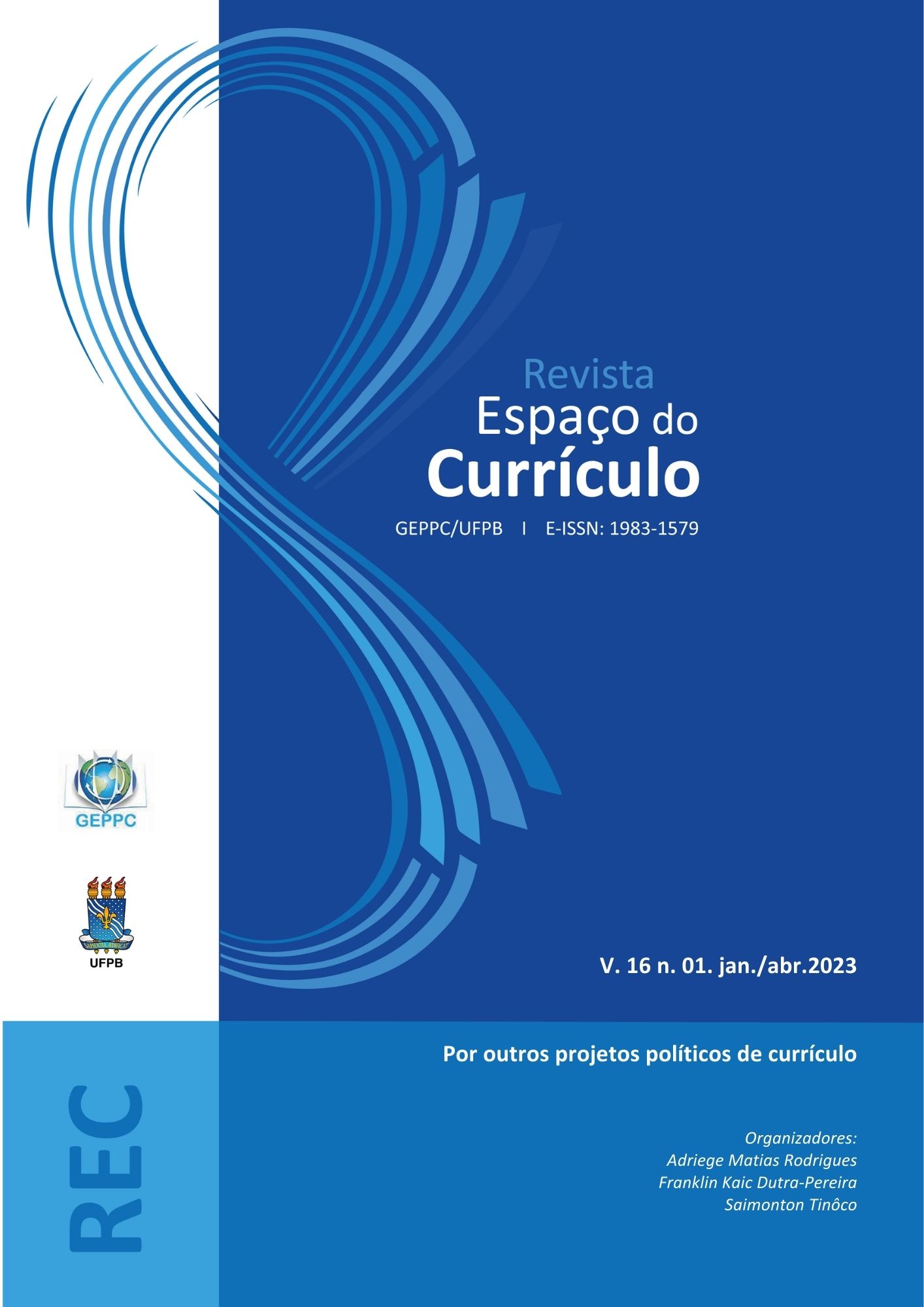THE INTEGRATED CURRICULUM AND THE PEDAGOGY OF ALTERNANCE
contributions to the integral formation of the subject
DOI:
https://doi.org/10.15687/rec.v16i1.63771Keywords:
Integrated Curriculum, Comprehensive Training, Pedagogy of AlternationAbstract
This study aims to point out some contributions of the Integrated Curriculum and the Pedagogy of Alternation for the integral formation of the subject in EFAN – Escola Família Agrícola de Natalândia – MG. It makes it possible to understand the concepts of curriculum, discuss the concept of Integrated Curriculum, characterize the Pedagogy of Alternation (PA) and analyze the relationship of the Integrated Curriculum with the Pedagogy of Alternation. It refers to a descriptive research, framed in the qualitative approach. As for the procedures, it is a bibliographic review, through the survey of articles and books by renowned authors that discuss the curriculum, the Integrated Curriculum and the Pedagogy of Alternation. In addition, the information expressed in the Pedagogical Political Project - PPP of EFAN on the subject researched is also analyzed. In this sense, it is possible to infer that with the PA, using pedagogical instruments that are available, it is possible to carry out work with practices of the Integrated Curriculum. It is a very innovative experience, in which the student has the possibility to integrate studies into social life. In addition, it allows the student to be the protagonist of the teaching-learning process and seeks to organize education, especially in the countryside, with the purpose of training subjects in an integral way.
Downloads
Metrics
References
APPLE, Michael W. Ideologia e Currículo. 3ª Ed. Porto Alegre: Ed. Artmed; 2006.
BERNSTEIN, Basil. A Estruturação do Discurso Pedagógico: classe, código e controle. Petrópolis: Vozes, 1996.
BOURDIEU, P. Questões de Sociologia. Rio de Janeiro: Marco Zero, 1983.
CASALI, Jessica Pereira; GONÇALVES, Josiane Peres. Pós-estruturalismo: algumas considerações sobre esse movimento do pensamento. Disponível em: file:///C:/Users/Microsoft/Downloads/84-92.pdf. Acesso em: 1ºde agosto de 2021.
CORDEIRO, Georgina N. K.; HAGE, Salomão Mufarre; REIS, Neila da Silva. Pedagogia da Alternância e seus desafios para assegurar a formação humana dos sujeitos e a sustentabilidade do campo.Em Aberto. Brasília, v. 24, n. 85, p. 115-125, abr. 2011.
COSTA, Maria Adélia da. Currículo Integrado: concepções, perspectivas e experiências. Belo Horizonte:CEFET-MG.2011.
DEMO, Pedro. Professor do Futuro de Reconstrução do Conhecimento. 5. Ed. Petrópolis, RF: Vozes, 2007.
FAZENDA, Ivani (Org.). O que é interdisciplinaridade? São Paulo: Cortez, 2008.
FOERSTE, Erineu; PUIG-CALVÓ, Pedro; CALIARI, Rogério Omar (Orgs.). Pedagogia da Alternância: 50 anos em Terras Brasileiras. 1. ed., Curitiba: Appris, 2019.
FREIRE, Paulo. Ação cultural para a liberdade. 5ª ed., Rio de Janeiro, Paz e Terra. 1981.
FROSSARD, Antonio Carlos. Conhecendo a Pedagogia da Alternância: contextualização, questões teóricas e práticas. Nova Friburgo: Editora Frossard, 2018.
GOODSON, Ivor F. Currículo: teoria e prática. 15. ed. Petrópolis: Vozes, 2018.
KULLER, José Antônio; MORAES, Francisco de. Currículos Integrados: no Ensino Médio e na Educação Profissional. São Paulo: Ed. SENAC. 2016.
MACHADO, Lucília Regina Souza. Ensino médio e técnico com currículos integrados: propostas de ação didática para uma relação não fantasiosa. Disponível em: https://scholar.google.com.br/citations?user=83ZtjS8AAAAJ&hl=pt-BR. Acesso em: 4 set. 2021.
MERLEAU-PONTY, M. Fenomenologia da percepção. Trad. Carlos Alberto Ribeiro de Moura. São Paulo: Martins Fontes, 1999.
MOURA, Dante Henrique. Ensino Médio Integrado: subsunção aos interesses do capital ou travessia para a formação integral? Educ. e Pesquisa, São Paulo, v. 39, n.3, p. 705-720, jul./set. 2013.
PROJETO POLÍTICO PEDAGÓGICO. EFAN DE Natalândia. Natalândia - MG, 2020. https://www.efan.com.br/pedagogico. Acesso em: 22 nov. 2020.
RAMOS, Marise Nogueira. Concepção de Ensino Médio Integrado. Natal, 2008.
SACRISTÁN, José Gimeno. O Currículo: uma reflexão sobre a prática. 3. ed. Porto Alegre: Penso, 2017.
SILVA, Tomaz Tadeu da. Documentos de Identidade: uma introdução às teorias de currículo. 3. ed. Belo Horizonte: Autêntica Editora, 2019.
ZABALA, Antoni. A Prática Educativa: como ensinar. Porto Alegre: Artmed, 1998.
Downloads
Published
How to Cite
Issue
Section
License
Copyright (c) 2023 Curriculum Space Journal

This work is licensed under a Creative Commons Attribution 4.0 International License.
By submitting an article to Curriculum Space Journal (CSJ) and having it approved, the authors agree to assign, without remuneration, the following rights to Curriculum Space Journal: first publication rights and permission for CSJ to redistribute this article. article and its metadata to the indexing and reference services that its editors deem appropriate.
















